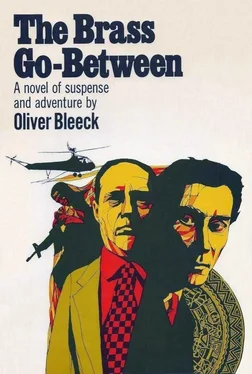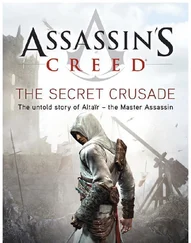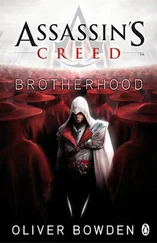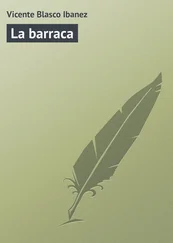Oliver Bleeck - Brass Go-Between
Здесь есть возможность читать онлайн «Oliver Bleeck - Brass Go-Between» весь текст электронной книги совершенно бесплатно (целиком полную версию без сокращений). В некоторых случаях можно слушать аудио, скачать через торрент в формате fb2 и присутствует краткое содержание. Город: New York, Год выпуска: 1969, Издательство: William Morrow, Жанр: Детектив, на английском языке. Описание произведения, (предисловие) а так же отзывы посетителей доступны на портале библиотеки ЛибКат.
- Название:Brass Go-Between
- Автор:
- Издательство:William Morrow
- Жанр:
- Год:1969
- Город:New York
- ISBN:нет данных
- Рейтинг книги:3 / 5. Голосов: 1
-
Избранное:Добавить в избранное
- Отзывы:
-
Ваша оценка:
- 60
- 1
- 2
- 3
- 4
- 5
Brass Go-Between: краткое содержание, описание и аннотация
Предлагаем к чтению аннотацию, описание, краткое содержание или предисловие (зависит от того, что написал сам автор книги «Brass Go-Between»). Если вы не нашли необходимую информацию о книге — напишите в комментариях, мы постараемся отыскать её.
Brass Go-Between — читать онлайн бесплатно полную книгу (весь текст) целиком
Ниже представлен текст книги, разбитый по страницам. Система сохранения места последней прочитанной страницы, позволяет с удобством читать онлайн бесплатно книгу «Brass Go-Between», без необходимости каждый раз заново искать на чём Вы остановились. Поставьте закладку, и сможете в любой момент перейти на страницу, на которой закончили чтение.
Интервал:
Закладка:
“Nothing,” I said.
“We’re going to need a formal statement from you.”
“All right,” I said. “When?”
“Tomorrow.”
“When?”
“Oh, say ten o’clock? Or is that too early for you?”
“That’s fine.”
“Uh-huh,” he said, and turned to Demeter. “You knew Ogden, you say?”
“I knew him,” Demeter said, and his tone was flat and careful.
“Well?”
“We went through the FBI Academy together, back in the fifties.”
“What do you think?”
“Nothing,” Demeter said. “I think absolutely nothing.”
“That’s a big help,” the homicide detective said. “If you get around to thinking something, let me know.” He made a brusque wave with his hand at the other two homicide detectives who were younger and taller and not quite so tired-looking. “Come on,” he said, “let’s go down to the lobby and find out how many eyewitnesses we got.” He turned to Demeter once again. “You know how many we’re going to have?”
“How many?”
“Less than one. Zero.” He moved to the door, opened it, and let the two other detectives through. Then he turned and looked at the bed with its blood-soaked pillows and spread. “God, the paperwork,” he said. “You know something?” he said to Demeter.
“What?”
“A cop should get killed in his own home town.”
A bellhop arrived shortly after the homicide detectives left, ogled the blood, picked up my overnight bag which I had repacked, and led Demeter, Fastnaught, and me past the uniformed cop stationed outside the door, down the hall, into the elevator, up two floors and into another room. “Lot of blood,” he said as he unlocked the door. No one seemed to want to contradict him so he stood around until I remembered to give him a tip. Fastnaught walked over to the window and resumed his inspection of the rain. Demeter selected a chair and eased himself into it as if the dampness made his joints stiff. I opened the overnight case and took out the bottle of Scotch.
“You want a drink?” I said.
“Water,” Fastnaught said.
“Just water or Scotch and water?”
“Scotch and water.”
“Lieutenant?”
“Sure,” he said. “Why not?”
I mixed three drinks and handed them around. Fastnaught turned from the window and rested his rear on the sill. Demeter produced one of his cigars and ritualistically lighted it. I sank into an arm chair opposite Demeter.
“Well, what do you think, Sergeant Fastnaught?” Demeter said.
Fastnaught took a swallow of his drink before answering. “I think,” he said slowly, “that we got ourselves a whole new ball game.”
“What makes you say that, Sergeant Fastnaught?” Demeter said, and wiped some of his drink from his Ronald Colman mustache.
“Your friend Ogden,” Fastnaught said.
“My friend Ogden,” Demeter said softly. “I wonder what happened to my friend Ogden. When I first met him more than fifteen years ago all he wanted to do was show you pictures of his baby daughter. He was enthused about the whole thing then, a hell of a lot more than I was. I wonder how he felt the first time he got hold of some of that easy money. When you’re on the vice squad it’s always floating around. Just stick out your hand and somebody will lay a couple of hundred in it. And around Christmas, I suppose, with a wife and a baby daughter, a couple of hundred can make a lot of difference. Maybe it was around Christmas that my friend Ogden stuck his hand out for the first time. What do you think, St. Ives?”
“He was a crook,” I said. “He was a crook who for a slice of $250,000 wouldn’t mind becoming a murderer.”
“Is that a moral judgment, St. Ives?”
“It’s only what he told me he was.”
“And were you shocked, maybe a little surprised?”
“No,” I said. “Not particularly.”
“Why not, St. Ives? Didn’t you have even a bit of what the editorials call ‘moral indignation’ or outraged sensibility? Why didn’t you report him? Why didn’t you go down and see his superior and say, ‘By the way, this Ogden that works for you. I’m afraid he’s something of a wrong one, a shade dishonest, you might say.’”
I found a cigarette and lit it. “How much do you pay for your suits, Lieutenant?”
“Seventy-five tops, and that’s the one I wear to Mass.”
“How about you, Sergeant Fastnaught?”
He smiled a little. “I paid one twenty-five once, but then I’m not married.”
“Ogden paid at least $300 for his suits. He drove a Lincoln Continental. His wife had a Buick. He played table-stakes poker and could drop $500 without a blink. He lived in a co-op apartment that cost God knows how much, but not less than $80,000 and that doesn’t include maintenance. I knew this and I didn’t see Ogden but maybe a dozen times a year when we played poker. Now if I knew this, then the people he worked for knew it, so why should I play Morally Outraged Citizen? And just who the hell do I tell about it? His superior, you say. For all I know his superior had cut himself in for twenty-five percent.”
“Suppose,” Demeter said, and looked up at the ceiling, “suppose Fastnaught here and me made you a proposition, maybe something like you say Ogden made you?”
“He made it,” I said.
“Suppose we made it then. Would you be surprised?”
“I’d be surprised.”
“Why? Because we wear cheap suits?”
“No.”
Demeter leaned forward in his chair and stared at me with his beany eyes. “You got something built into your head, St. Ives? Some kind of a gauge that tells you this cop’s honest and this one’s a crook? You got something like that?”
“No.”
“Then how about me and Fastnaught? How can you tell we’re honest?”
“Because I don’t know any differently.”
“And you’d be surprised if we made you a proposition?”
“I’ve already said that.”
Demeter finished his drink and placed it on a table beside his chair. I didn’t ask him whether he wanted another one. He tapped off an inch of cigar ash into a tray, looked at Fastnaught who nodded, and then leaned back comfortably in the chair.
“Fastnaught and me,” he said, “are going to make you a proposition. We talked about it on the way over here, even before we knew that Ogden was mixed up in the deal. Now we’d like to get your considered opinion. You say that Ogden knew who the thieves were?”
“He said he did.”
“And you figure they killed him because he knew?”
“Probably.”
Demeter puffed on his cigar. “Now that he’s dead, you think they’ll go ahead with the switch?”
“How should I know?”
“I think they will,” Demeter said. “What do you think, Fastnaught?”
“Another dead one won’t bother them,” Fastnaught said.
“You’re probably right,” Demeter said. “How many does that make now?” He stuck the cigar in his mouth and started counting on his left hand. “There’s Sackett, the spade guard, that’s one. Ogden makes two. And there was this guy, Frank Spellacy, up in New York. You forgot to mention him to the homicide boys, St. Ives.”
“So did you,” I said.
“Well, we’re not sure about him.”
“Who told you? Ogden?”
“No, Not Ogden. Ogden’s not the only cop I know in New York.”
“He even knows a couple of honest ones,” Fastnaught said.
“Let’s just say that we found out that you had an appointment with Frank Spellacy the day he got killed and that Ogden put in a word or two for you.”
“All right,” I said.
Demeter was counting on his left hand again. “Now how many’s that? The guard, Ogden, and Spellacy. That’s three. Any more, Fastnaught?”
“One more,” Fastnaught said from his seat at the window. “George Wingo.”
Читать дальшеИнтервал:
Закладка:
Похожие книги на «Brass Go-Between»
Представляем Вашему вниманию похожие книги на «Brass Go-Between» списком для выбора. Мы отобрали схожую по названию и смыслу литературу в надежде предоставить читателям больше вариантов отыскать новые, интересные, ещё непрочитанные произведения.
Обсуждение, отзывы о книге «Brass Go-Between» и просто собственные мнения читателей. Оставьте ваши комментарии, напишите, что Вы думаете о произведении, его смысле или главных героях. Укажите что конкретно понравилось, а что нет, и почему Вы так считаете.












